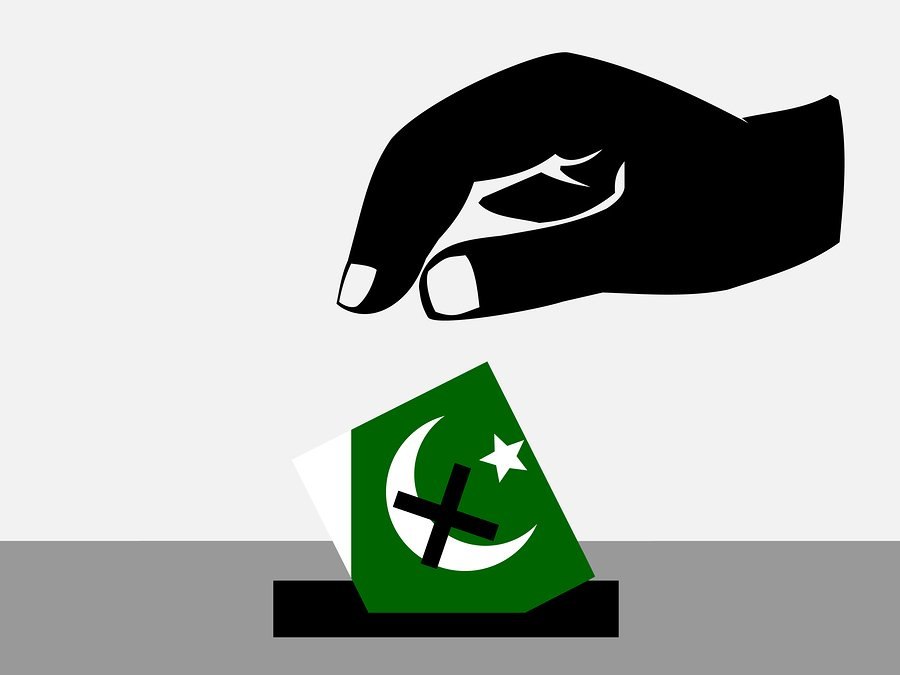
Will The Election Bring Positive Change to Pakistan?
Although democracy is the country’s fundamental political system, Pakistan has had military rule imposed thrice since indpendence in 1947. Political parties such as Nawaz Sharif’s Pakistan Muslim League (PML N) and Bhutto’s Pakistan People’s Party Parliamentarians (PPPP) have ruled Pakistan since the 1970’s. For the first time, contesting this year’s election is former cricketer Imran Khan’s political party, Pakistan Tehreek-e-Insaf (PTI), which has gained popularity among Pakistan’s youth and women.
The majority of online respondents (85 percent) believe the level of corruption in Pakistan has increased significantly in the past two years, particularly those aged 35-39, of whom 92 percent indicate the same. Additionally, 58 percent of online respondents think it is common for public officials in Pakistan to accept bribes.
Fifty-seven percent of online respondents feel Pakistan is going through a major political crisis, with 42 percent blaming politicians for the crisis. Additionally, nearly three-fourths of online respondents (72 percent) strongly believe the Pakistani government is ruled by a small group of people who act in their own interest, with the highest proportion of online respondents (84 percent) aged above 40 stating the same.
Two-fifths of online respondents in Pakistan are extremely interested in Pakistani politics. When asked about the direction they believe the country is going in, 35 percent say it is going ‘slightly’ in the right direction. Close to two-fifths of online respondents believe Pakistan is going ‘completely’ in the wrong direction, with 44 percent aged 25 to 29 opining the same. Not surprisingly, half of the online respondents in Karachi believe Pakistan is moving in the wrong direction, possibly due to their dissatisfaction with terrorism in the area.
Among the major concerns of online respondents in Pakistan are government corruption (50 percent), followed by the current status of law and order (44 percent) in the country. Fifty-five percent of online respondents aged above 40 feel Pakistan’s law and order is a major concern for them, while only one-third of online respondents aged 18 to 24 feel the same (in comparison to 55 percent of online respondents above 40). Surprisingly, only thirteen percent of online respondents feel unemployment is a major concern.
| Current Situation | Future expectations-12 months | |
|---|---|---|
Life in General | (-) 15% (+) 14% | (-) 18% (+) 45% |
Economy in Pakistan | (-) 66% (+) | (-) 43% (+) 19% |
Household’s financial situation | (-) 23% (+) 9% | (-) 24% (+) 36% |
Jobs in Pakistan | (-) 61% (+) | (-) 46% (+) 16% |
Price in Pakistan | (-) 79% (+) | (-) 59% (+) 12% |
Two-fifths of online respondents expressed extremely negative opinions about the current economy of Pakistan, along with almost a quarter of online respondents expressing similar sentiments towards their household’s financial situation. Additionally, more than three-quarters of online respondents (79 percent) gave negative ratings regarding the general level of prices in Pakistan followed by 61 percent of online respondents who expressed the same regarding the current employment opportunities in Pakistan.
On a positive note, 45 percent of online respondents were optimistic their life in general would become better in the coming 12 months followed by 36 percent of online respondents who believed their household’s financial situation would improve. However, only one-fifth of online respondents held a favorable opinion the economy of Pakistan will improve. However, almost half of online respondents believe the employment prospects (45 percent) and general level of prices in Pakistan (59 percent) will become worse in the coming next year.
When online respondents were asked whether they will vote in the upcoming elections, almost three-quarters said they would. When online respondents were asked about the attributes they associate with various political parties, PTI generated favorable responses amongst all political parties. Ffifty-eight percent of online respondents believe the PTI ‘cares for people like them’, with one-third of online respondents in Lahore stating the same. Additionally, 56 percent of online respondents said PTI can get Pakistan out of the crisis in comparison to thirty one percent of online respondents who believe the same for PML N. Country wise 60 percent of online respondents in Karachi feel PTI can get Pakistan out of the crisis in comparison to 13 percent of online respondents who had similar views for PML N.
Furthermore, 62 percent of online respondents feel PTI can make the required reforms Pakistan needs as compared to quarter of online respondents who think the PML N can do a better job providing them. One-third of online respondents in Lahore felt PML N can reform Pakistan. Additionally, 58 percent of the online respondents feel PTI can improve Pakistan’s international standing as opposed to 29 percent who felt PML N can do it. An overwhelming 70 percent of the online respondents in Karachi believe the PTI can improve the educational system in Pakistan. Furthermore, 58 percent of online respondents believe the PTI can strengthen democracy and civil rights in comparison to 28 percent of the online respondents who believe the PML N could do a better job.
However, on a positive note, 63 percent of online respondents feel the political situation in Pakistan will improve after the elections, with 69 percent of online respondents in Rawalpindi, followed by 61 percent of the online respondents in Lahore and half of the online respondents in Karachi, stating the same.
The survey was conducted using the YouGov Online Panel and all questionnaires were completed between the 12th - 24th March 2013. The results are based on a total sample of 1224 respondents currently living in Pakistan. The YouGov panel is broadly representative of the online population within Pakistan.